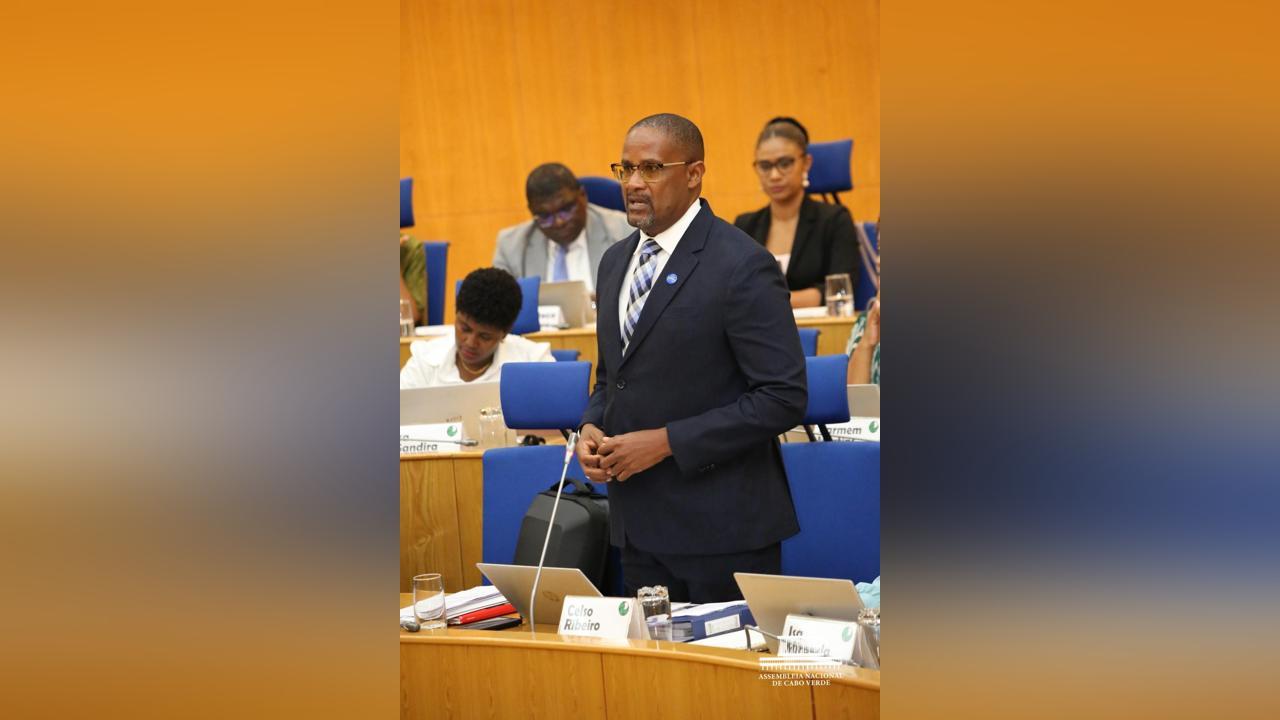Africa-Press – Cape verde. The parliamentary leader of the Movement for Democracy (MpD), Celso Ribeiro, said today, during the Solemn Session of Parliament marking 50 years of independence, that the country has reason to be proud of the progress it has made, but that it needs to take an honest look at the past. In this sense, he advocated an apology from the State to the victims of the single-party regime established after independence.
“50 years after our independence, an apology from the State to the Cape Verdean people is still justified,” he said.
In his speech, Celso Ribeiro considered that this recognition should be accompanied by due and adequate reparation to all victims of the authoritarian regime established by the PAIGC/CV.
Although he acknowledged the progress made by the country, the leader of the MpD bench stressed that the legacy of 15 years of single-party rule represented a hindrance to national development.
“Overall, it is undeniable that the results are clearly positive in various areas of our collective life. However, it is legitimate to acknowledge that we could have done much better, and gone much further, if it were not for the fifteen years of single-party dictatorship, more focused and concerned with political and ideological issues than with the imperatives of human, social and economic development”, he pointed out.
Celso Ribeiro also revisited the political environment after April 25, 1974, highlighting that Cape Verde briefly experienced a period of freedom and democracy before the imposition of a single-party system. He mentioned, as examples, the ban on demonstrations, the attack on Rádio Barlavento and the arbitrary detention of dozens of Cape Verdean citizens in December 1974.
“The normal course of the political process of 1974/1975 would have been to accompany independence, from the very beginning, with democracy”, he stated.
For the parliamentarian, the country only began to change course in 1990, with the transition to a democratic regime.
“It was the Cape Verdean people, in the founding elections of democracy on January 13, 1991, who confirmed that the path was towards freedom,” he said, highlighting that the political transition process was peaceful, exemplary and united the nation.
“Unlike the independence process, which divided Cape Verdeans, democracy brought us closer together and allowed for lasting progress.”
In economic terms, Celso Ribeiro highlighted recent achievements, such as Cape Verde’s classification as a middle-high income country by the World Bank, economic growth of 7.3% in 2024, inflation controlled at 1.7% and the lowest unemployment rate since independence, set at 8%.
However, he warned of the persistence of challenges, namely social inequalities and poverty, and called on the Government to continue to focus on inclusion, social cohesion and sustainable development.
The MP acknowledged that the Cape Verdean democratic system is functional but imperfect, pointing to the lack of political dialogue as one of its weaknesses. In this sense, he proposed the signing of a global political agreement with the opposition forces, namely the PAICV, to unblock the election of external bodies of the National Assembly and other matters that require a qualified majority. Celso Ribeiro repudiated the narratives that associate youth emigration with the country’s failure. “It is false, it is dangerous and it is unfair,” he stated. He considered that youth mobility is a natural consequence of globalization and represents an opportunity for Cape Verde. In conclusion, the parliamentary leader reaffirmed that celebrating 50 years of independence is also a time to recognize the mistakes of the past, value those who contributed to the construction of the country and renew the commitment to a freer, fairer and more prosperous Cape Verde.
For More News And Analysis About Cape verde Follow Africa-Press






